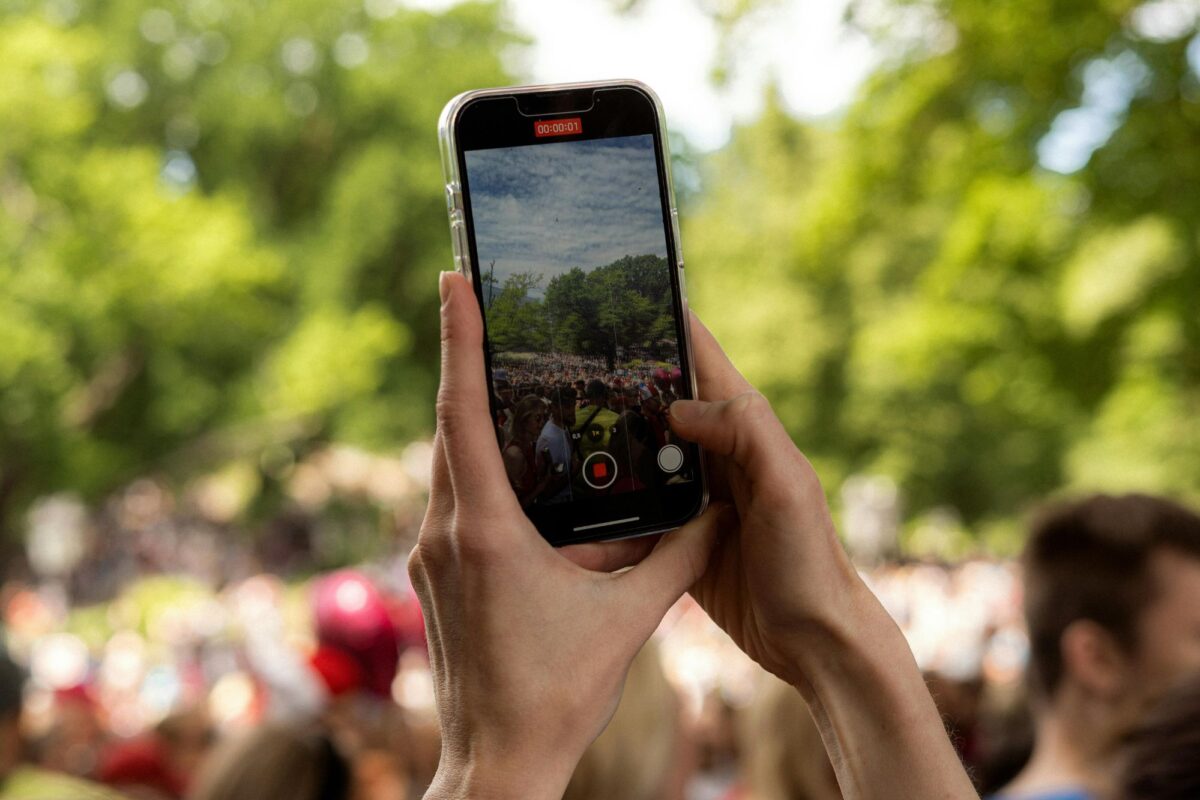Let’s ask ourselves, how easy do we find it to draw a line between life in reels and real life?
Although scrolling through social media posts excites our imagination, can we have personal goals based on the content we enjoy on social media platforms like Instagram or Facebook?
“When it comes to social media, there are just times I turn off the world, you know. There are just some times you have to give yourself space to be quiet, which means you’ve got to set those phones down.” –Michelle Obama
Read more: Tips to overcome mindless scrolling habit
Maintaining a healthy perspective for a balanced life requires recognizing the difference between reel and real life, as this distinction is essential for living with authenticity and genuineness.
The lack of separation between a person’s digital life and their actual life, particularly in the age of social media, digital personas, and curated online content, has become a growing concern.
This blurring of boundaries can result in a constant need for validation, a fear of missing out, and a reliance on external approval for self-worth.
Reels and identity struggle

Many individuals struggle to distinguish between who they truly are and the image they present to the world, often leading to identity confusion, unrealistic self-expectations, and chronic stress.
Has social media skewed the perception of reality in the present age?
When people start performing their lives for an audience, they start losing touch with their own inner experiences.
Read more: How to overcome seeking constant validation?
When external validation becomes the main source of self-worth, individuals may struggle to know who they are without the “likes” and “views”.
Posting to connect or to get validated?

I often see people seeking social media platforms for validation.
In today’s world, sharing parts of our lives on social media like vacations, birthdays, new purchases, and achievements has become habitual. But sometimes it’s worth pausing and asking: Am I sharing to connect, or to be validated?
It’s human nature to want to be seen and acknowledged. But when likes and comments become the main measure of our happiness or self-worth, it’s easy to fall into a loop where online approval starts to replace genuine connection.
Read more: Tips to overcome the emotional struggle within
True validation comes from within, and from the people who know us beyond curated posts.
Social media should be a tool for connection, not a mirror for constant comparison.
Unveiling the deception

People highlight the best and perfect moments of their lives on social media reels, which can bring about feelings of inadequacy and constant comparison among vulnerable audiences.
Every time you resort to scrolling through posts, it’s crucial to keep in mind that these posts are not an accurate representation of life.
People do not highlight in reels various struggles, challenges, and vulnerabilities faced in daily life, which are a part of the journey for everyone.
Attention algorithms on social media platforms ensure better reach with attention-driven feeds by curating content for users.
Attention-based feeds are great for getting more likes and views.
They show people a flood of content that matches their existing interests and beliefs, which means they rarely see new or different perspectives.
Know more: The role of perspective in shaping your life.
Over time, this creates echo chambers, where people only hear more of what they already believe.
Keep yourself from getting deceived by maintaining a positive approach to your screen time consumption.
Responsible use of reels

While reels are a testament to human creativity, with the power to captivate viewers, it is essential to use them with discernment and responsibility.
Reels offer a potent tool for branding and promotion. They cater to a wide array of interests, like information on quick recipes, easy workouts for busy people, product demos, or travel highlights.
Relying entirely on reels for entertainment, information, or planning something keeps you from a deeper understanding and better perspectives.
Consuming digital content responsibly and being open to changing your views based on credible information can make you a mindful viewer, keeping you from getting carried away by a desire for instant gratification.
Do you agree that the responsible use of reels is essential to avoid getting swayed by their captivating influence on viewers? Do share in comments.





I have to say, I 100% agree with the quote you shared from Michelle Obama. I find myself increasingly turning away from social media. I like to use it, and it does keep me entertained and informed, but it’s also a time drain. You’ve written a very thought-provoking post, and it’s given me some things to think about.
Thank you for sharing your view on this post.
Being mindful with the use of social media is crucial for a balance in life.